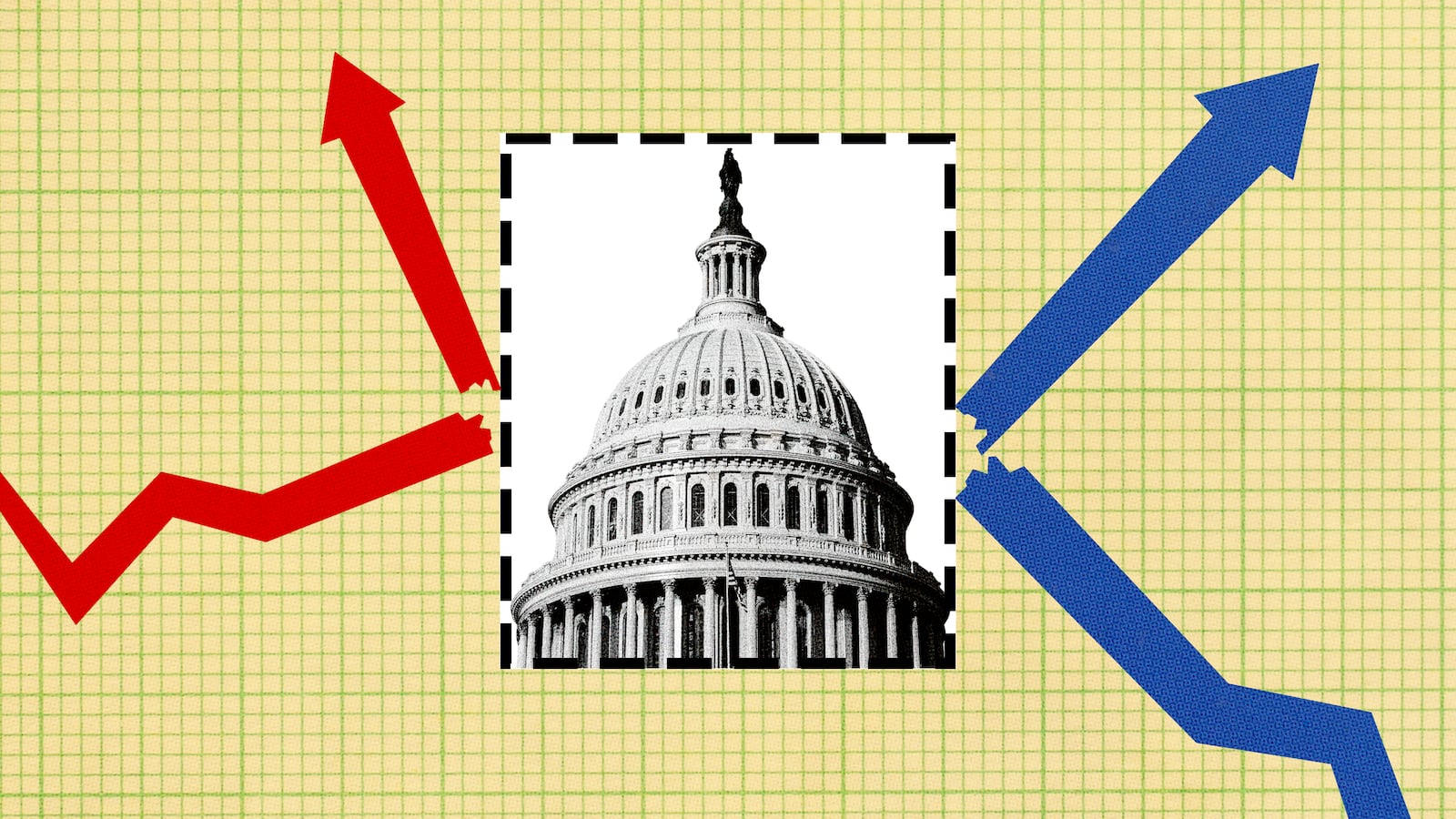Earlier this month, Congress took an important step toward cleaning up its act: for only the third time since the Civil War, it voted to expel one of its members. But the ethical rot in Congress extends beyond former Rep. George Santos’ outrageous lies and campaign and financial abuses. The institution is in a crisis of public confidence that we must address.
Routine reports of members of Congress making suspicious stock trades and owning stock in companies they regulate have severely harmed the public’s confidence that members of Congress act in the best interest of our country—rather than their own wallets.
It’s past time that we rise to the occasion and pass comprehensive legislation to ban members of Congress, their spouses and their dependent children from owning or trading stock, and that’s precisely what the bipartisan Ending Trading and Holding In Congressional Stocks (ETHICS) Act would do.
This critical bipartisan legislation, which was introduced by two of this column’s co-authors—Rep. Raja Krishnamoorthi (D-IL) in the House and Sen. Jeff Merkley (D-OR) in the Senate—as well as by Rep. Michael Cloud (R-TX) in the House, addresses the threat posed by members of Congress owning and trading individual securities, which undermines the critical work of the federal government.
At the beginning of the pandemic, a moment when public confidence in our institutions of government was critical, Congress was rocked by reports of members trading individual stocks in pharmaceutical companies after receiving non-public information about the threat of COVID-19. Since then, we’ve seen a steady drip of scandals, each day seemingly bringing another story of members trading stocks in industries their committees regulate, or holding investments in fossil fuel companies while sitting on committees in charge of climate change policies. And each new incident drives public faith in our government lower and lower.
Public confidence in our institutions of government is now at the lowest level since Gallup began asking the question in 1979. We cannot afford to accept further degradation of public confidence in our system of government at a time when we need Americans to vote, which they will only do if they believe that the government can listen to them and deliver on their priorities. It is simply too dangerous to delay reform.
That is why we, in collaboration with members of Congress from both sides of the aisle, and civil society experts like Noah Bookbinder (one of the co-authors of this column) and his colleagues at Citizens for Responsibility and Ethics in Washington (CREW), developed the ETHICS Act. This legislation is the result of years of work, on Capitol Hill and in conversations with the American people. It includes the following key elements.
First, the Act prohibits members of Congress from owning or trading any individual stocks or other similar financial assets, except registered diversified mutual funds. Second, it applies to members’ spouses and dependent children. And third, it includes a clear and workable enforcement mechanism that will serve as a real deterrent.
The American people widely support these policies across partisan lines—86 percent of the public support a ban on trading, including 87 percent of Republicans, 88 percent of Democrats, and 81 percent of independents. And Republicans support prohibiting members of Congress from owning individual stocks by a 28 point margin, while Democrats support the policy by a 27 point margin, and independents support a prohibition by a 29 point margin.
In fact, the ETHICS Act’s policies are so popular that Congress’ inability to pass a stock ban is fueling the same crisis of confidence in Congress that the ETHICS Act would address. The public has expressed their overwhelming support for these policies for years now—yet time and again Congress has failed to act.
In this era of immense partisanship, chances to pass legislation that brings everyone from the deepest red to the brightest blue states together are few and far between. But that is precisely what we have here.
The American people are demanding action to ensure that members of Congress act in the interest of the people they serve, rather than their own financial interest.
It is time to listen to the American public and pass the ETHICS Act.











